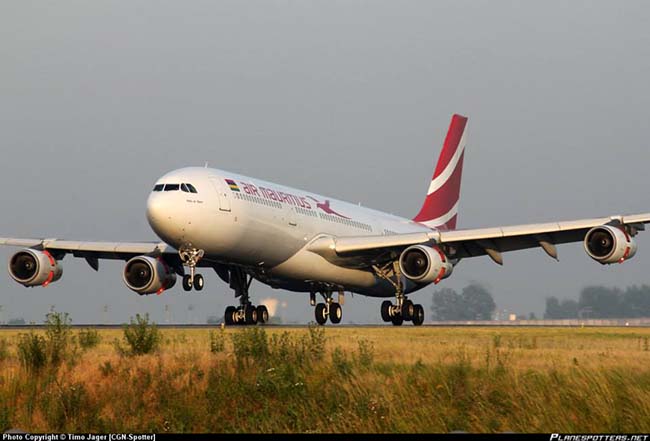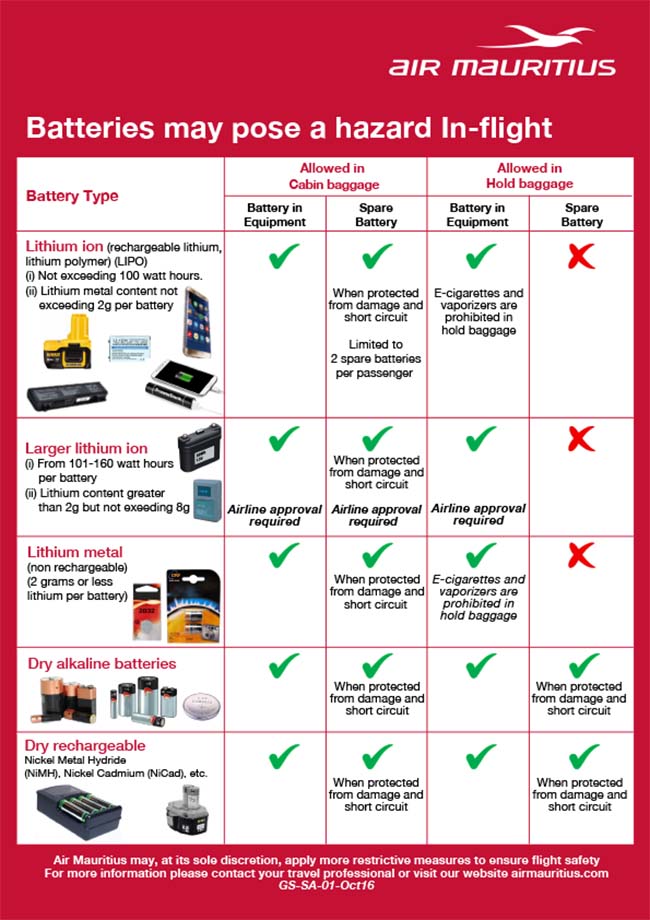【AIR MAURITIUS】MANAGING RISKS WHEN CARRYING LITHIUM BATTERIES

Batteries pose a number of safety risks on board an aircraft. With the ever increasing number of devices using powerful batteries, it is important to raise the general awareness of this risk and associated restrictions.

Air Mauritius Ground Operations has embarked on a safety campaign to sensitize Team Members on these risks.
FREQUENTLY ASKED QUESTIONS
1. Why do batteries pose a hazard in-flight?
Batteries pose two types of hazards:
- Short circuit can cause extreme heat and sparks and even start a fire.
- When handled improperly, or if manufactured defectively, some rechargeable batteries can experience thermal runaway resulting in overheating, fire or explosion.
2. Why are airlines so concerned about Lithium Batteries?
- A number of incidents have occurred whereby phones and laptops caught fire due to defective lithium batteries.
- Lithium battery fire is so intense that conventional firefighting equipment is often ineffective.
3. Is there a limit on the size and power of lithium battery I can carry?
- Yes, the limits are set according to the power measured in watt hour or lithium metal content of the battery.
4. How do I determine the Watt Hours (Wh) rating of a battery?
- To determine Watt Hours (Wh), multiply the Voltage (V) by the Ampere hours (Ah). Example: A 12-volt battery rated to 10 Amp hours is equivalent to 120 Watt Hours (12 x 10 = 120). For milliampere hours (mAh), divide by 1000 (to get to Ah) and then multiply by the voltage as above.
5. How do I protect batteries from short circuit?
- Ideally keep spare batteries in their original packaging. Otherwise in a battery case, or a separate pouch or pocket where batteries cannot move around.
- Alternatively by placing an insulating tape over the terminals of unpackaged batteries.
6. Is there is limit to the number of Lithium battery powered devices I can carry in hold baggage?
- Yes, a maximum of 5 consumer electronic devices with Lithium batteries are allowed.
7. What about Wet /Lead acid batteries?
- These batteries may pose a hazard due to acid spill; consequently only non-spillable wet batteries, limited to 12 volts and 100 watt hours are allowed subject to certain restrictions.





























